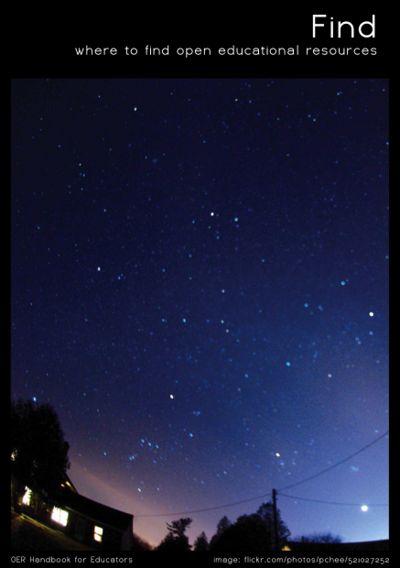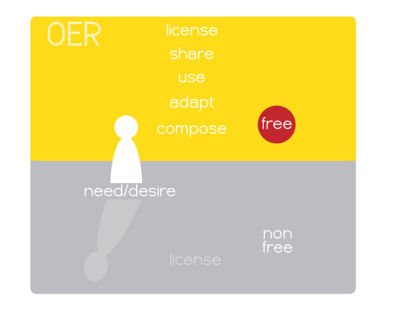Find
| OER Handbook for educators | |
|---|---|
| Contents | | Introduction | Find | Compose | Adapt | Use | Share | License | Conclusion | Appendices |
- Find Your Own Resources
- Search Engines
- General Repositories
- Science Repositories
- Social Science Repositories
- Humanities Repositories
- Open Textbooks
- Individual Project Sites
- File Formats
- Accessibility
- Perspectives
As stated in the introduction, one of the four "Rs" is "Reuse." This section will show you where to find these resources as well as ones that can be localized or remixed (see Adapt OER). The various sections are presented in an order deemed most efficient with state of the art search engines and OER repositories as they are today (mid-2008). However, you may be drawn to a particular sub-section and find what you need just as efficiently.
Start with a general search engine and some carefully chosen keywords (e.g. high school, biology, photosynthesis). If you need to search further, try some of the general OER repositories, and finally the relevant theme-based repositories, or individual project sites. If entire text books (or extracts) are required, start with "Open Textbooks".
Search for quality, and have confidence in your own ability to judge how useful the resource looks for you and your learners.
Source
Schmidt, P. (2007, November). "7.1 Searching and finding OERs." UNESCO OER Toolkit draft. WikiEducator. Retrieved March 21, 2008, from http://www.wikieducator.org/UNESCO_OER_Toolkit_Draft#Searching_and_finding_OERs

